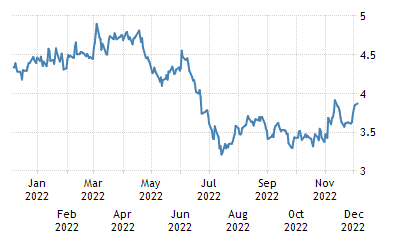
It offers income tax benefits, which is one of the advantages of investing in dividend yielding mutual funds. This money is subject to income tax, so investors should be aware of the income tax brackets for mutual fund dividends before investing. This article contains important information about taxes related to mutual fund dividends. It will also help you determine how much tax you can deduct from your dividend. Systematic Withdrawal Plans are another option to reap the tax benefits and build wealth.
Investing in dividend-yielding mutual funds
There are many reasons to consider investing in dividend-yielding, mutual funds. This fund invests in shares of well known companies with high cash flows. They are able to generate higher long-term returns. A benefit is that they are less volatile than other types equity funds. This makes them perfect for beginning equity investors with low risk appetites.

You should carefully consider the expense ratio and risk when choosing a dividend mutual funds. The expense ratios of these funds are typically low, which can be a major benefit to those with tight budgets. They also tend to grow dividends slower than other investments. These funds are great for investors who want protection from market fluctuations and high returns. If you have a high tolerance for risk, however, investing in a dividend-yielding mutual fund may be a good choice.
Dividends from mutual fund funds are subjected to taxes
There are many variables in the tax that you will pay on dividends received from mutual funds. You will pay a different tax rate depending on which type of distribution. Ordinary dividends can be taxed at ordinary income levels. Capital gains, on other hand, will be subject to long-term capital growth rates. The tax rate will be lower if your mutual fund pays an exempt-interest dividend. If you are not sure what to do with your mutual fund's dividends, here are some tips:
In general, most dividends from mutual funds are treated as ordinary income, but there are special rules for investors who qualify to receive lower capital gains rates. A qualified dividend rate of 23.8% is available for stock held in the fund that has been owned for more than 5 years. However, if your income is in the lower bracket you may not be subject to tax. You should consider how much tax you can afford if you have a large amount of mutual fund investments.
Income tax slab for dividend from mutual fund
A dividend received from a mutual fund is considered taxable income. It is subject the income tax slab rates for FY 2020-21. Each assessee will have different tax benefits and deductions. However, dividend interest can be claimed as a deduction. However, it cannot exceed 20% of your dividend income. Furthermore, your dividend income cannot be deducted from for any other expenses. You must understand the tax consequences prior to withdrawing your dividend.

Dividends from mutual funds are subject to a tax rate of 1% - 33% However, the tax rate is lower if you have less than a certain amount of income. This tax is applicable to equity mutual funds as well as non-equity mutual fund investments. In general, dividends from mutual funds are exempted from tax for investors. TDS (Total deductions and discretionary tax) are required for dividend income from equity mutual funds.
FAQ
How do I choose an investment company that is good?
You should look for one that offers competitive fees, high-quality management, and a diversified portfolio. Fees are typically charged based on the type of security held in your account. Some companies charge no fees for holding cash and others charge a flat fee per year regardless of the amount you deposit. Others charge a percentage based on your total assets.
It is also important to find out their performance history. A company with a poor track record may not be suitable for your needs. Avoid companies with low net assets value (NAV), or very volatile NAVs.
You also need to verify their investment philosophy. Investment companies should be prepared to take on more risk in order to earn higher returns. If they aren't willing to take risk, they may not meet your expectations.
What are the benefits to owning stocks
Stocks have a higher volatility than bonds. Stocks will lose a lot of value if a company goes bankrupt.
However, share prices will rise if a company is growing.
Companies usually issue new shares to raise capital. This allows investors the opportunity to purchase more shares.
Companies use debt finance to borrow money. This gives them access to cheap credit, which enables them to grow faster.
When a company has a good product, then people tend to buy it. The stock's price will rise as more people demand it.
As long as the company continues producing products that people love, the stock price should not fall.
What is the difference?
Brokers are individuals who help people and businesses to buy and sell securities and other forms. They take care of all the paperwork involved in the transaction.
Financial advisors are experts in the field of personal finances. Financial advisors use their knowledge to help clients plan and prepare for financial emergencies and reach their financial goals.
Financial advisors may be employed by banks, insurance companies, or other institutions. Or they may work independently as fee-only professionals.
You should take classes in marketing, finance, and accounting if you are interested in a career in financial services. Also, it is important to understand about the different types available in investment.
What is a Reit?
A real estate investment Trust (REIT), or real estate trust, is an entity which owns income-producing property such as office buildings, shopping centres, offices buildings, hotels and industrial parks. They are publicly traded companies that pay dividends to shareholders instead of paying corporate taxes.
They are similar to a corporation, except that they only own property rather than manufacturing goods.
Statistics
- "If all of your money's in one stock, you could potentially lose 50% of it overnight," Moore says. (nerdwallet.com)
- The S&P 500 has grown about 10.5% per year since its establishment in the 1920s. (investopedia.com)
- Ratchet down that 10% if you don't yet have a healthy emergency fund and 10% to 15% of your income funneled into a retirement savings account. (nerdwallet.com)
- Our focus on Main Street investors reflects the fact that American households own $38 trillion worth of equities, more than 59 percent of the U.S. equity market either directly or indirectly through mutual funds, retirement accounts, and other investments. (sec.gov)
External Links
How To
How to create a trading plan
A trading plan helps you manage your money effectively. It will help you determine how much money is available and your goals.
Before you start a trading strategy, think about what you are trying to accomplish. You may want to make more money, earn more interest, or save money. If you're saving money you might choose to invest in bonds and shares. You could save some interest or purchase a home if you are earning it. And if you want to spend less, perhaps you'd like to go on holiday or buy yourself something nice.
Once you have an idea of your goals for your money, you can calculate how much money you will need to get there. It depends on where you live, and whether or not you have debts. Also, consider how much money you make each month (or week). Your income is the net amount of money you make after paying taxes.
Next, make sure you have enough cash to cover your expenses. These expenses include rent, food, travel, bills and any other costs you may have to pay. These all add up to your monthly expense.
You'll also need to determine how much you still have at the end the month. This is your net discretionary income.
Now you know how to best use your money.
To get started with a basic trading strategy, you can download one from the Internet. You could also ask someone who is familiar with investing to guide you in building one.
For example, here's a simple spreadsheet you can open in Microsoft Excel.
This is a summary of all your income so far. It includes your current bank account balance and your investment portfolio.
Here's an additional example. This one was designed by a financial planner.
It will help you calculate how much risk you can afford.
Don't attempt to predict the past. Instead, focus on using your money wisely today.